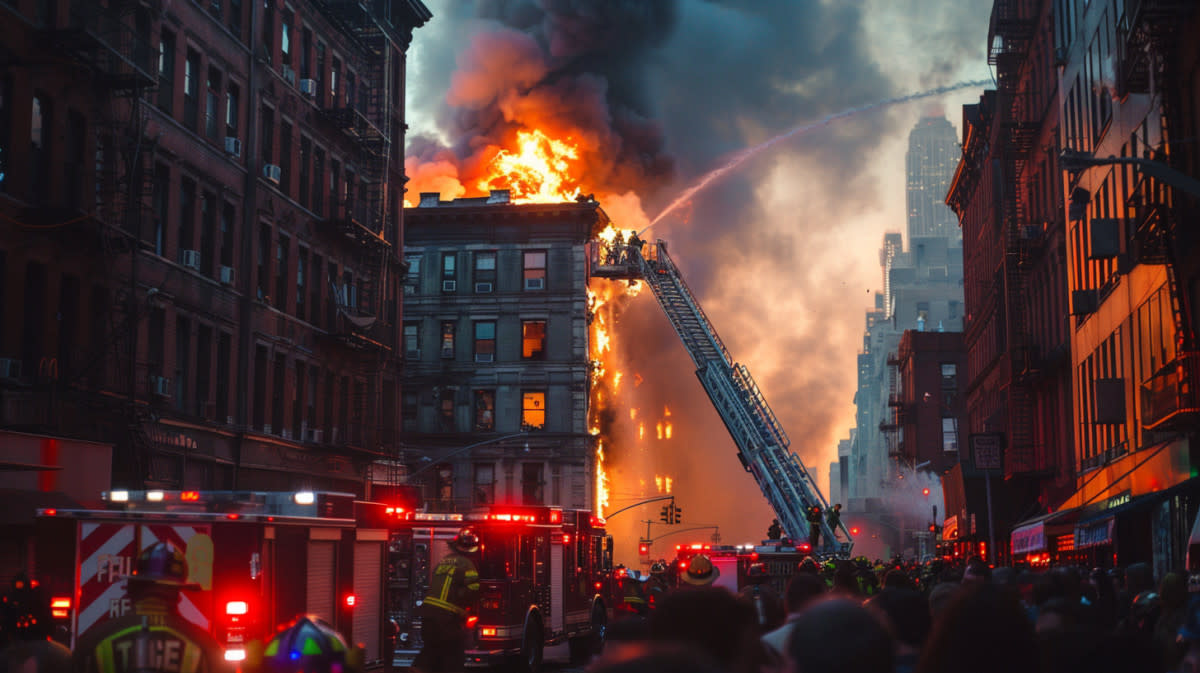First-Ever Charges Laid Against NYC E-Bike Shop Owner for Illegal Battery Storage

Bruno Long/MidJourney
In New York City, the Fire Department has taken a significant step in addressing the rising issue of lithium-ion battery fires by filing criminal charges against a Brooklyn e-bike shop owner.
Tian Liang Liu, owner of Electric Bicycle Shop on Flatbush Avenue, faces charges of reckless endangerment for illegal storage and charging practices. Despite multiple inspections and violations, Liu defied fire codes, storing loose battery cells and e-bikes without proper certification.
FDNY Commissioner Laura Kavanagh emphasized the severity of the situation, noting that the shop's non-compliance posed a significant risk. The city's efforts to mitigate such risks include a recent law prohibiting the sale of e-bikes and batteries lacking UL certification. However, until now, penalties were solely financial, with fines of up to $1,000 per SKU for non-compliant sales.
This action follows a series of inspections revealing similar violations in other bike shops across Manhattan and beyond. The FDNY aims to increase penalties for illegal sales, leases, or rentals, including potentially closing shops for repeat offenders.
The urgency of these measures is underscored by the alarming statistics: 240 fires and 17 deaths attributed to lithium-ion battery incidents in the city last year, with a further 61 investigations and multiple injuries reported this year alone. Kavanagh stressed that the problem persists, which is evident in the recent surge of battery-related fires.
As the city works to enforce stricter regulations and penalties, the safety of residents remains a paramount concern in combating the risks associated with uncertified batteries and e-bikes.
Part of the Solution
While the FDNY targets local shops that circumvent the city's regulations, other measures are in place to help improve the experience for e-bikers in the city and educate them on the importance of having safe and certified e-bikes and batteries rolling through the streets of New York.
In his latest column, Gothamist columnist Matt Katz lays out three approaches that NYC is taking to change the way its citizens interact with electric bikes. One of the approaches is exactly what the FDNY is doing, which is cracking down on illegal batteries and imported e-bikes that don't meet safety standards. This has been a significant problem over the past several years, with multiple fires causing deaths in the NYC area and forcing New York regulators to change some laws regarding importing and selling unregulated e-bikes online.
Most fires have been caused by non-UL-certified batteries, improper charging units or cords, and tampering with batteries to 'unlock' faster speeds. When it comes to buying a new or used electric bike, make sure to ask about the battery certification and double-check that the bike or battery hasn't been altered in any way. These factors can lead to 'thermal runaway,' a dangerous chemical reaction that causes hazardous fires.
Thermal runaway is a chain reaction within a battery cell that can be very difficult to stop once it has started. It occurs when the temperature inside a battery reaches the point that causes a chemical reaction to occur inside the battery. This chemical reaction produces even more heat, which increases the temperature, causing further chemical reactions that create more heat.
One of the other main issues with the number of unregulated electric bikes is that access to cheaper, non-UL-certified has become the preferred way for NYC delivery workers to travel throughout the city. But this is changing with programs such as the Equitable Commute Project, which facilitates the trade-in of uncertified bikes, scooters and mopeds and receive safer EVs at reduced rates. The city of New York is also hoping to have their own trade-in program up and running in the near future.
Finally, the city has pledged almost a million dollars to install much-needed charging infrastructure in the city in the hopes that this will lead to further investment by the government to the tune of almost $25 million for more charging stations throughout the city. Improving cycling infrastructure is a topic that plagues many cities in the US; however, with the boom of electric bikes, it is a topic that is not going away and will need to be met head-on with forward-thinking city planners and ringing endorsements from city councils.

